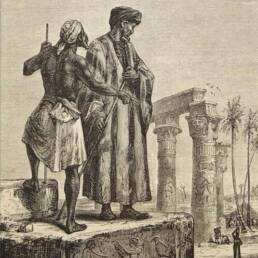Almost everyone remembers the Nargis and Sunil Dutt starrer ‘Mother India’ as an iconic film that defined a young, post-independent India. But did you know that the film’s title was chosen to counter a novel bearing the same name published almost two decades ago? Read on.
Around 1927 Mahatma Gandhi chose to review a book and observed the following: “This book is cleverly and powerfully written. The carefully chosen quotations give it the false appearance of a truthful book.
“But the impression it leaves on my mind is that it is the report of a drain inspector sent out with the purpose of opening and examining the drains of the country to be reported upon or to give a graphic description of the stench exuded by the opened drains.”
“If Miss Mayo had confessed that she had come to India merely to open out and examine the drains of India, there would perhaps be little to complain about her compilation.”
But she declared her abominable and patently wrong conclusion with a certain amount of triumph: ‘The drains are India’.” Intriguingly, the name of the book was ‘Mother India’ and its author was a certain American who went by the name of Katherine Mayo.
Born in Ridgway, Pennsylvania, in the mid-19th century, Katherine Mayo started her career as an assistant to Oswald Garrison Villard, an American civil rights activist who was then the editor of the New York Evening Post.

Under Villard’s guidance, Katherine was quickly able to carve a niche for herself by being on the right side of the divide. She teamed up with radical organizations that often shared her hostility towards people of color and Catholic immigration to the United States.
At a time when the Philippines intensified its struggle for independence from the U.S., Katherine denounced the Philippine Declaration of Independence and came out with a book called the “Isles of Fear” where she justified American rule over the island nation.
Her controversial stance caught the attention of the British authorities in India who were now facing an organized movement for the country’s independence. Katherine was invited to India where she was told to make similar observations and justify colonial rule.
In India, Katherine read government reports on health and sanitation and conducted interviews of a dozen odd people after which she concluded that Indians, much like the people of Philippines, were not fit to self-govern.
In 1927, Katherine published her findings in a book and titled it ‘Mother India.’ The book, though met with applause across certain sections, was heavily criticized in America as well as in India where protests were held and effigies were burnt of Katherine.
Among the people who criticized Katherine’s views and findings was pro-Indian American rights activist Jabez Thomas Sunderland. Sunderland countered Katherine’s work with facts, statistics, and perhaps a better understanding of the intrinsic problem India was facing at the time.
Back in India, leaders of the freedom movement heavily criticized Katherine’s work. Annie Besant, the British social reformer, called ‘Mother India’ a remarkably wicked book. Even the great bard, Rabindranath Tagore, didn’t shy away from voicing his rebuke.
Several other works came out as a rebuttal to the claims made in the controversial book, including Lala Lajpat Rai’s ‘Unhappy India’ which was published in 1928. Mehboob Khan’s epic, ‘Mother India,’ which was released almost two decades later, is also thought to be in response to Katherine’s novel.
Cornelia Sorabji, the Indian lawyer who helped Katherine during her research, faced hostility after the publication of the book. Cornelia intended to bring out the plight of Indian women but she would later regret her friendship with Katherine.
Katherine, on the other hand, never shifted from her stance. She came out with a few more books on the same theme before passing away in 1940. Interestingly, she never wrote anything about the racial and sexual discrimination prevailing in America at the time.
Sources
Opening Doors: The Untold Story of Cornelia Sorabji, Reformer, Lawyer and Champion of Women’s Rights in India by Richard Sorabji; Mother India by Katherine Mayo;




